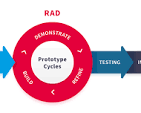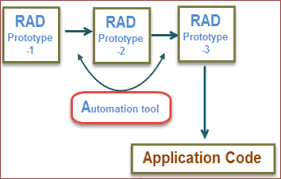Mastering Mobile Development with C++: Harnessing the Power of Efficiency and Performance
The Power of C++ in Mobile Development
When it comes to mobile development, many programmers think of languages like Java or Swift. However, C++ is a powerful and versatile language that can also be used to create high-performance mobile applications.
Why Choose C++ for Mobile Development?
C++ is known for its speed and efficiency, making it an ideal choice for resource-intensive mobile applications. Its ability to directly interact with hardware and memory management gives developers more control over their code, resulting in faster and more optimized apps.
Multi-Platform Support
One of the key advantages of using C++ for mobile development is its cross-platform compatibility. With tools like the Android NDK (Native Development Kit) and frameworks like Qt, developers can write code once and deploy it on multiple platforms, including Android and iOS.
Integration with Existing Codebases
Many businesses already have a significant amount of code written in C++. By leveraging this existing codebase, developers can save time and resources when building mobile applications. C++ offers seamless integration with libraries written in other languages, making it easier to incorporate legacy code into new projects.
Performance Optimization
C++ allows developers to fine-tune their applications for optimal performance. By utilizing features like inline functions, pointers, and manual memory management, developers can create efficient algorithms that run smoothly on mobile devices with limited resources.
Conclusion
In conclusion, C++ is a valuable tool for mobile development, offering speed, efficiency, cross-platform support, and seamless integration with existing codebases. By harnessing the power of C++, developers can create high-performance mobile applications that meet the demands of today’s users.
Exploring C++ for Mobile Development: Common Questions Answered
- Is C++ good for mobile development?
- Is C++ a dead language?
- Can we use C++ for Android development?
- Is C++ good for Android?
- Is C++ good for iOS development?
- Can I make iOS apps with C++?
- Can you code C++ on a phone?
- Can I use C++ for iOS development?
Is C++ good for mobile development?
When considering mobile development, a frequently asked question is whether C++ is a suitable language for the task. The answer lies in the unique strengths that C++ brings to the table. With its speed, efficiency, and ability to directly interact with hardware, C++ is indeed well-suited for mobile development. Its cross-platform compatibility and seamless integration with existing codebases make it a practical choice for building high-performance mobile applications. By leveraging C++’s capabilities, developers can optimize their apps for speed and resource efficiency, ensuring a smooth user experience on various mobile platforms.
Is C++ a dead language?
The question of whether C++ is a dead language is a common concern among developers, especially in the rapidly evolving field of technology. Despite the emergence of newer programming languages and frameworks, C++ continues to be widely used in various industries, including mobile development. Its robust performance, efficiency, and ability to directly interact with hardware make it a valuable tool for creating high-performance applications. With ongoing updates and support from the community, C++ remains relevant and continues to be a popular choice for developers seeking powerful and versatile solutions in mobile development.
Can we use C++ for Android development?
When it comes to Android development, a common question that arises is whether C++ can be used for building Android applications. The answer is yes, C++ can indeed be utilized for Android development. With the support of the Android NDK (Native Development Kit), developers can write native code in C or C++ to create high-performance and resource-efficient applications for the Android platform. By leveraging the power of C++, developers can optimize their code for speed and efficiency, making it a suitable choice for building complex and performance-critical mobile apps on Android devices.
Is C++ good for Android?
When considering mobile development for Android, the question often arises: Is C++ good for Android? The answer is yes, C++ is a viable option for Android development. With its speed, efficiency, and ability to directly interact with hardware, C++ can be a powerful choice for building high-performance applications on the Android platform. Additionally, C++ offers cross-platform compatibility through tools like the Android NDK, making it easier to develop applications that can run on multiple devices. By leveraging the strengths of C++, developers can create robust and optimized Android apps that meet the demands of today’s mobile users.
Is C++ good for iOS development?
When it comes to iOS development, the question of whether C++ is a suitable choice often arises. While Objective-C and Swift are the primary languages used for iOS app development, C++ can still be a valuable tool in certain scenarios. C++ can be utilized for performance-critical tasks, such as game development or handling complex algorithms, where its speed and efficiency shine. Additionally, with tools like the iOS SDK and third-party libraries, developers can integrate C++ code seamlessly into their iOS projects. Ultimately, the decision to use C++ for iOS development depends on the specific requirements of the app and the expertise of the development team in leveraging C++ effectively within an iOS environment.
Can I make iOS apps with C++?
When it comes to mobile development with C++, a frequently asked question is, “Can I make iOS apps with C++?” The answer is yes. While Objective-C and Swift are the primary languages used for iOS app development, developers can still utilize C++ by incorporating it into their projects. With tools like the iOS SDK and frameworks like Xamarin, developers can write C++ code that interfaces with iOS APIs and create cross-platform applications that run on iOS devices. This flexibility allows developers to leverage the power of C++ while targeting the iOS platform, providing a versatile approach to mobile app development.
Can you code C++ on a phone?
Coding C++ on a phone is technically possible, but it may not be the most practical or efficient way to develop applications. While there are mobile apps and IDEs available that allow you to write and compile C++ code on a phone or tablet, the small screen size and limited processing power of mobile devices can make the coding experience challenging. Additionally, debugging and testing code on a mobile device may be cumbersome compared to using a desktop or laptop computer. For serious C++ development, it is recommended to use a more powerful development environment with adequate resources for efficient coding, testing, and deployment.
Can I use C++ for iOS development?
Yes, you can use C++ for iOS development. While Objective-C and Swift are the primary languages used for iOS app development, C++ can also be integrated into iOS projects. By leveraging tools like the iOS SDK and Xcode, developers can incorporate C++ code into their iOS applications to take advantage of its speed, efficiency, and cross-platform capabilities. This allows developers to reuse existing C++ codebases or implement performance-critical components in C++ while still building native iOS apps.









